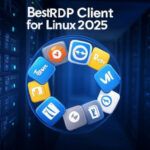In the ever-evolving world of IT, effective asset management is crucial. Whether you’re developing a comprehensive IT asset management (ITAM) software www.alloysoftware.com/it-asset-management-software from scratch or enhancing existing solutions, choosing the right tools is essential. This article explores the best tools for IT asset management software development, covering everything from integrated development environments (IDEs) to database management systems and version control tools.
Integrated Development Environments (IDEs)
An IDE is an indispensable tool for developers, providing an integrated interface for coding, debugging, and testing. The right IDE can significantly enhance productivity and code quality.
Top IDEs for ITAM software development
| IDE | Key features | Supported languages |
| Visual Studio | IntelliSense, Debugging, Git integration | C#, .NET, JavaScript, Python |
| IntelliJ IDEA | Smart code completion, Refactoring | Java, Kotlin, Groovy |
| Eclipse | Plugin-rich, Cross-platform | Java, C/C++, PHP |
Visual Studio
Visual Studio is a powerful IDE from Microsoft, favored for its robust debugging tools and IntelliSense code suggestions. It’s particularly well-suited for developing .NET-based ITAM software.
IntelliJ IDEA
IntelliJ IDEA, developed by JetBrains, is renowned for its intelligent code completion and extensive refactoring tools. It’s an excellent choice for Java developers working on ITAM solutions.
Eclipse
Eclipse is a versatile and open-source IDE with a vast plugin ecosystem. Its cross-platform compatibility makes it a popular choice for multi-language ITAM projects.
Version Control Systems (VCS)
Version control is critical in software development, allowing teams to track changes, collaborate effectively, and manage code versions.
Popular Version Control Systems
| VCS | Key features | Use cases |
| Git | Distributed VCS, Branching, Merging | Large, distributed teams |
| Subversion (SVN) | Centralized VCS, Simplicity | Smaller teams, Linear workflows |
| Mercurial | Easy branching, Fast | Cross-platform projects |
Git
Git is the most widely used VCS, known for its distributed nature and powerful branching and merging capabilities. It supports large, distributed teams and integrates seamlessly with platforms like GitHub and GitLab.
Subversion (SVN)
SVN is a centralized version control system known for its simplicity. It’s ideal for smaller teams with linear development workflows.
Mercurial
Mercurial offers easy branching and fast performance, making it suitable for cross-platform projects. It provides a user-friendly interface, even for beginners.
Database Management Systems (DBMS)
A reliable DBMS is essential for storing and managing the vast amount of data in ITAM software.
Leading DBMS options
| DBMS | Key features | Scalability |
| MySQL | Open-source, High performance | High |
| PostgreSQL | Advanced features, Extensible | Very High |
| Microsoft SQL Server | Integrated with Microsoft ecosystem | High |
MySQL
MySQL is an open-source DBMS known for its high performance and reliability. It’s widely used in ITAM solutions for its scalability and robust support.
PostgreSQL
PostgreSQL is an advanced, extensible DBMS with strong SQL compliance. It offers powerful features and is highly scalable, making it suitable for complex ITAM systems.
Microsoft SQL Server
Microsoft SQL Server integrates well with the Microsoft ecosystem, providing robust performance and security features. It’s a solid choice for ITAM solutions built within the Microsoft stack.
Automation tools
Automation tools streamline repetitive tasks, enhancing productivity and ensuring consistency.
Essential automation tools
| Tool | Key features | Use cases |
| Jenkins | Continuous Integration, Extensible | Build, Test, Deploy |
| Ansible | Configuration management, Orchestration | Infrastructure Automation |
| Puppet | Declarative configuration, Scalable | Infrastructure as Code (IaC) |
Jenkins
Jenkins is an open-source automation server widely used for continuous integration and continuous delivery (CI/CD). It automates the build, test, and deployment processes, ensuring rapid and reliable software releases.
Ansible
Ansible is a powerful tool for configuration management and orchestration. It automates infrastructure tasks, simplifying the management of ITAM software environments.
Puppet
Puppet provides declarative configuration management, enabling developers to define infrastructure as code. It’s highly scalable and suitable for managing complex ITAM environments.
Monitoring and analytics tools
Effective monitoring and analytics are crucial for maintaining the health and performance of ITAM software.
Top monitoring and analytics tools
| Tool | Key features | Use cases |
| Nagios | Comprehensive monitoring, Alerting | Server and network monitoring |
| Prometheus | Time-series database, Alerting | System and service monitoring |
| ELK Stack | Log analysis, Visualization | Log and event data analytics |
Nagios
Nagios is a comprehensive monitoring tool that provides real-time server and network monitoring, alerting administrators to potential issues before they escalate.
Prometheus
Prometheus is a time-series database designed for monitoring system and service metrics. Its powerful querying and alerting capabilities make it ideal for ITAM software.
ELK Stack
The ELK Stack (Elasticsearch, Logstash, Kibana) is a robust solution for log analysis and visualization. It helps in analyzing log and event data, providing valuable insights into ITAM software performance.
Conclusion
Choosing the right tools for IT asset management software development is vital for creating robust, scalable, and efficient solutions. Integrated Development Environments like Visual Studio and IntelliJ IDEA streamline coding and debugging, while version control systems such as Git ensure efficient collaboration. Database Management Systems like MySQL and PostgreSQL handle data effectively, and automation tools like Jenkins and Ansible enhance productivity. Monitoring and analytics tools like Nagios and Prometheus ensure the health and performance of ITAM software. By leveraging these tools, developers can build and maintain high-quality IT asset management solutions that meet the needs of modern enterprises.
Frequently Asked Questions
What is IT asset management software?
IT asset management (ITAM) software helps organizations track and manage their IT assets, including hardware, software, and other technology resources. It ensures efficient utilization, compliance, and lifecycle management of assets.
Why is version control important in ITAM software development?
Version control is crucial as it allows multiple developers to work on the same codebase without conflicts. It tracks changes, facilitates collaboration, and helps manage different versions of the software.
How do automation tools benefit ITAM software development?
Automation tools streamline repetitive tasks, such as testing and deployment, reducing errors and saving time. They ensure consistency and reliability in the development process.
What should I consider when choosing a DBMS for ITAM software?
When selecting a DBMS, consider factors like scalability, performance, and feature set. The DBMS should handle the data volume and complexity of your ITAM solution while providing robust support and security features.











Leave a Reply